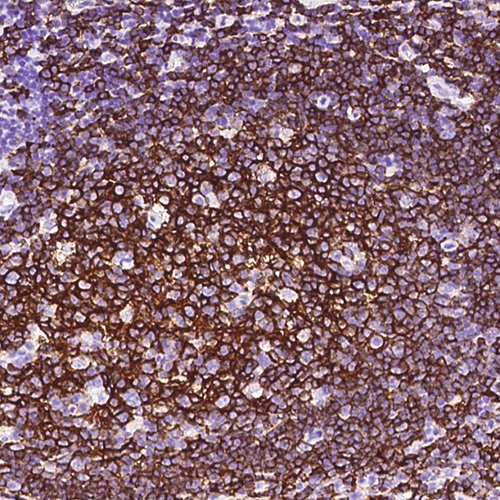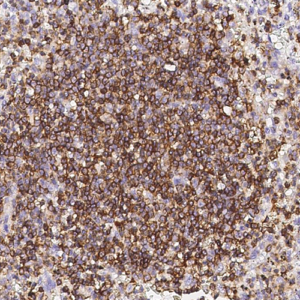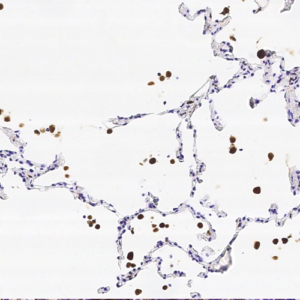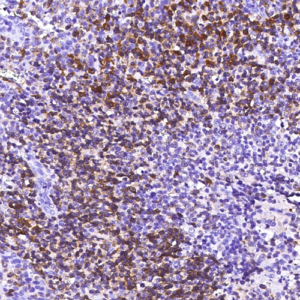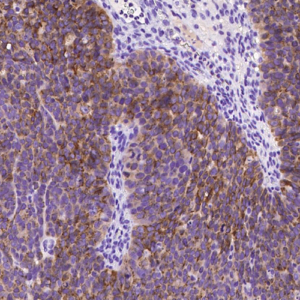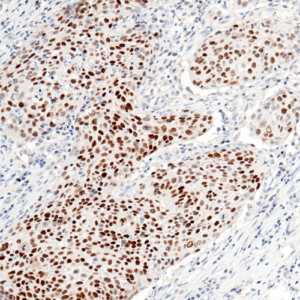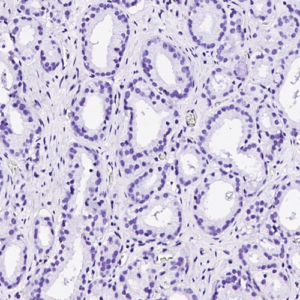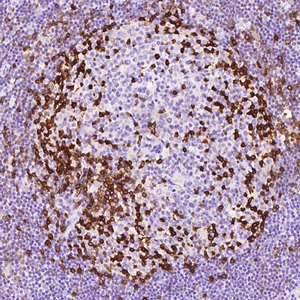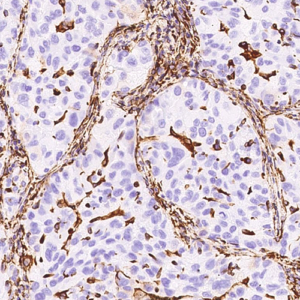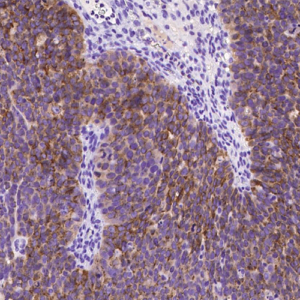CD20 (membrane-spanning 4-domains, subfamily A, member 1), also known as MS4A1, is a member of the membrane-spanning 4A gene family. Members of this nascent protein family are characterized by common structural features and similar intron/exon splice boundaries and display unique expression patterns among hematopoietic cells and nonlymphoid tissues. CD20 / MS4A1 is expressed in all stages of B cell development except the first and last. CD20 / MS4A1 is present from pre-pre B cells through memory cells, but not on either pro-B cells or plasma cells. It is a B-lymphocyte surface molecule that plays a role in the development and differentiation of B-cells into plasma cells. CD20 / MS4A1may be involved in the regulation of B-cell activation and proliferation. Defects in CD20 / MS4A1 are the cause of immunodeficiency common variable type 5(CVID5). CVID5 is a primary immunodeficiency characterized by antibody deficiency, hypogammaglobulinemia, recurrent bacterial infections, and an inability to mount an antibody response to antigen. The defect results from a failure of B-cell differentiation and impaired secretion of immunoglobulins; the numbers of circulating B-cells are usually in the normal range but can be very low.
SKU: KPIH1040CD20
CD20
| Pack Size | 100 ul |
|---|---|
| Source | Mouse |
| Clone | 6 |
| Class | IgG |
| Isotype | IgG1 |
| Tested Reactivity | Human CD20 |
| Localization | Membrane |
| Pretreatment | Thermal Remediation |
| Applicable Tissue | Paraffin Section |
| Positive Control | Human Tonsil |
| Storage Temperature | Store at -20 Degrees |

